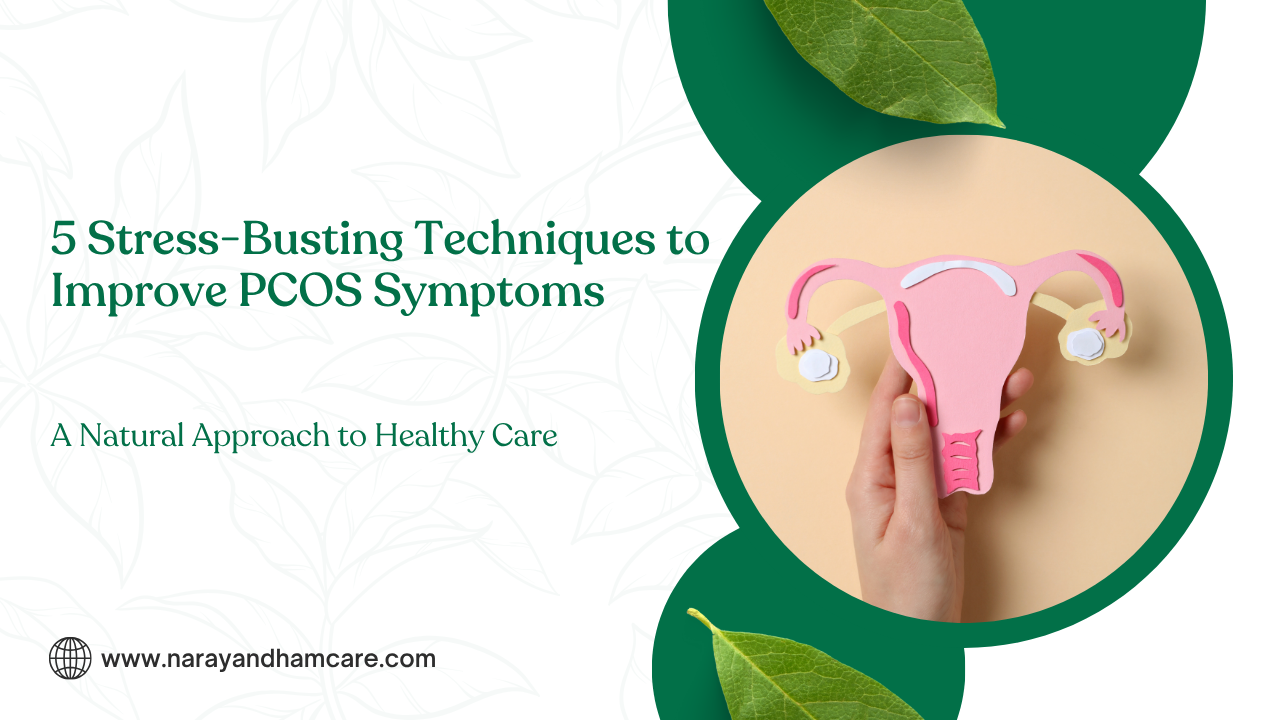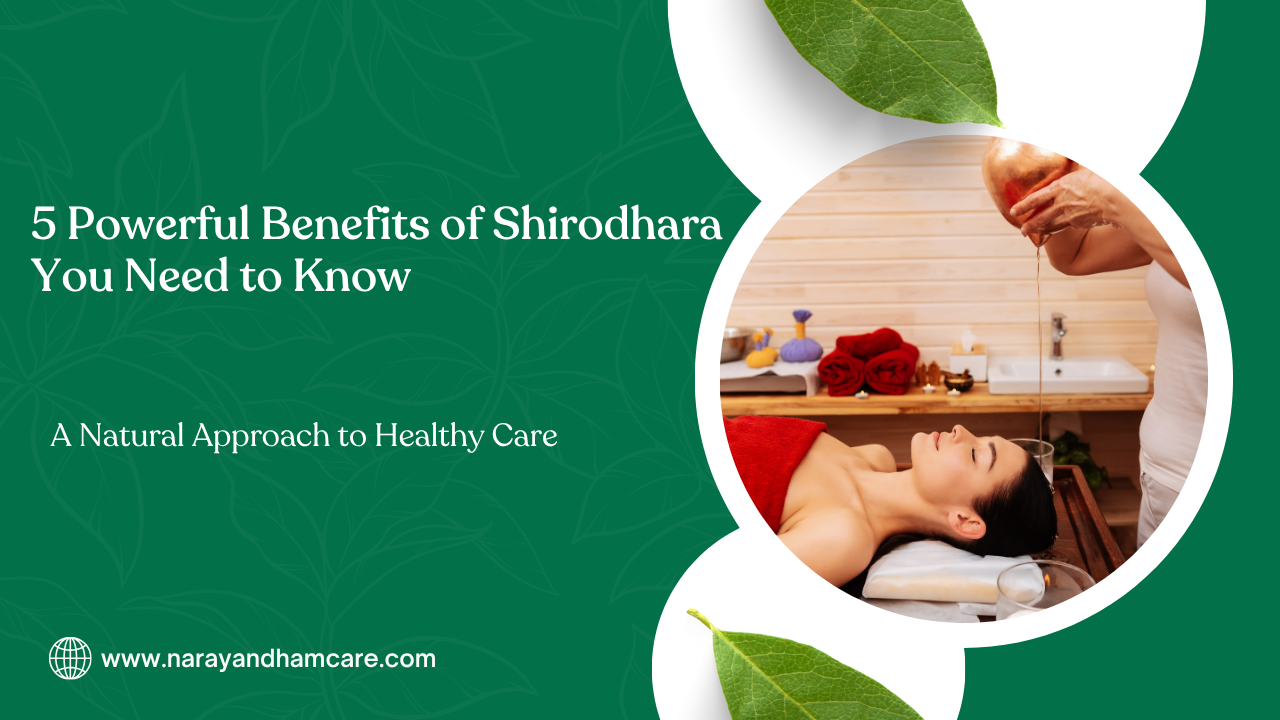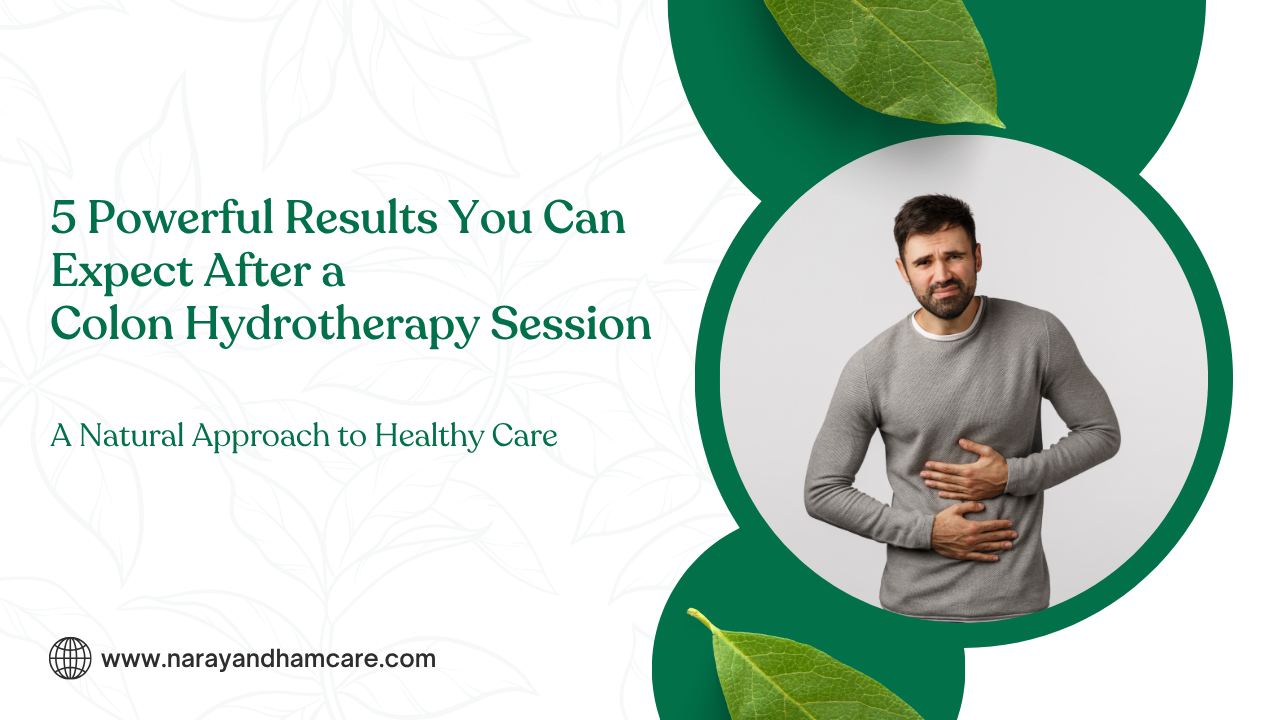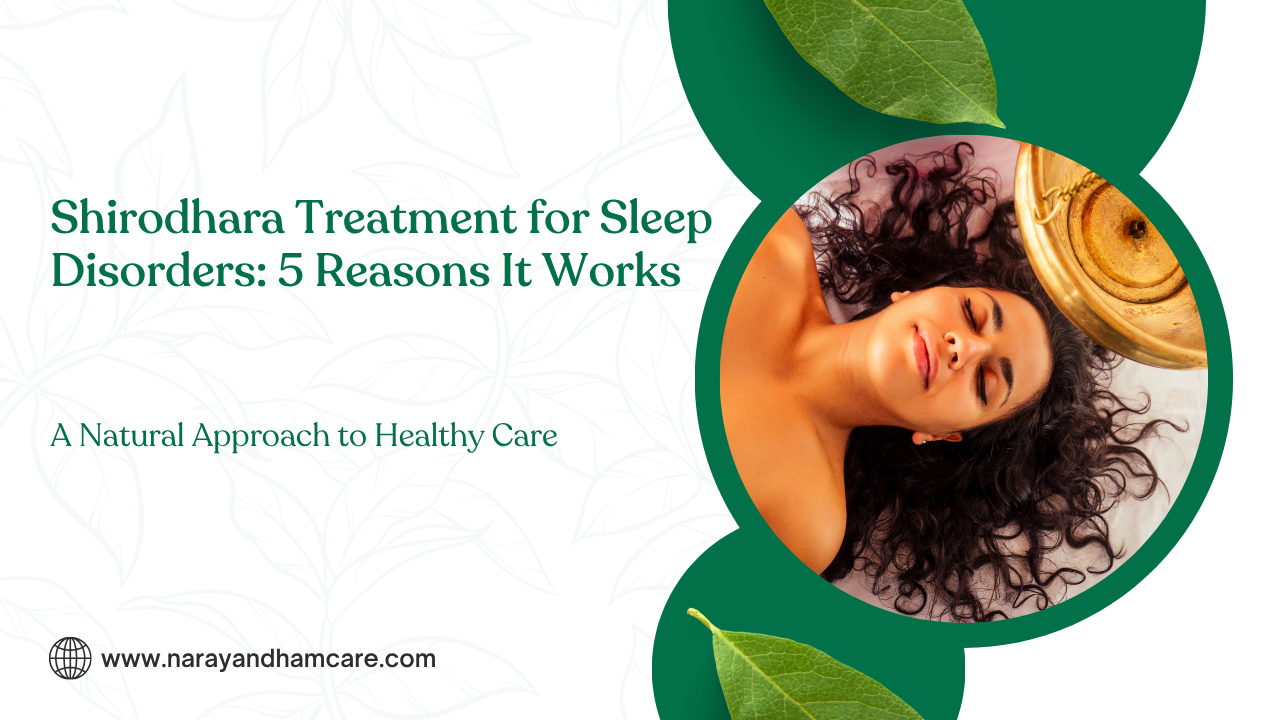🔹 Introduction: Why Stress Matters in PCOS
Polycystic Ovary Syndrome is a common hormonal disorder that affects millions of women. It leads to problems like irregular periods, weight gain, acne, and even difficulty getting pregnant. But did you know that stress can make PCOS symptoms worse?
When we are stressed, our body releases a hormone called cortisol. This hormone can disturb the balance of other hormones, making PCOS symptoms more severe. That’s why managing stress is an important part of PCOS treatment.
In this blog, we will share 5 easy and natural stress-busting techniques that can help improve your health and reduce your PCOS symptoms. These tips are beginner-friendly and safe for anyone to try.
🔹 Problem: How Stress Affects PCOS
Many women with struggle daily with hormonal imbalance. These hormonal issues can lead to:
- Irregular periods
- Hair fall or hair thinning
- Acne or oily skin
- Excess facial or body hair
- Mood swings or depression
- Fatigue and low energy
- Difficulty losing weight
Now, add stress to this mix, and the problem only gets worse.
When you’re stressed:
- Cortisol levels rise.
- Insulin resistance may increase.
- Inflammation levels go up.
- Your periods may become even more irregular.
- You may feel more anxious, tired, or emotionally drained.
This creates a cycle: causes stress → Stress worsens. Breaking this cycle is the key to better health.
🔹 Symptoms of Stress in PCOS
Here are common signs that stress is affecting your:
- Missed or delayed periods
- Increased facial hair or acne
- Rapid weight gain or difficulty losing weight
- Emotional outbursts or crying spells
- Difficulty sleeping (insomnia)
- Feeling tired even after a full night’s sleep
- Constant worry or restlessness
- Low sex drive
These symptoms are common in both stress. That’s why stress management must be part of your treatment plan.
🔹 Solution: 5 Natural Stress-Relief Techniques for PCOS
Let’s now explore five natural remedies for stress relief. These are easy to follow, cost-effective, and don’t require any special equipment.
1. Deep Breathing & Meditation
Why it helps: Deep breathing reduces cortisol levels and helps calm your mind. Meditation trains your brain to stay in the present moment, reducing anxiety.
How to do it:
- Sit in a quiet space.
- Close your eyes.
- Inhale deeply through your nose for 4 seconds.
- Hold for 4 seconds.
- Exhale slowly through your mouth for 6 seconds.
- Repeat for 5–10 minutes daily.
Bonus Tip: Use meditation apps like Headspace or Insight Timer for guided sessions.
2. Regular Gentle Exercise
Why it helps: Exercise boosts endorphins—your body’s feel-good hormones. It also improves insulin sensitivity and helps with weight loss, which is great for hormonal balance.
Best exercises:
- Yoga
- Walking (30 mins daily)
- Swimming
- Light aerobic workouts
- Stretching routines
Avoid over-exercising, as it can stress your body more. Aim for consistency, not intensity.
3. Follow an Anti-Inflammatory Diet
Why it helps: Stress both cause inflammation. A healthy diet helps reduce it and balances hormones naturally.
Foods to eat:
- Leafy greens (spinach, kale)
- Berries (blueberries, strawberries)
- Nuts and seeds (almonds, flaxseeds)
- Healthy fats (olive oil, avocado)
- Herbal teas (turmeric, chamomile)
Foods to avoid:
- Refined sugar and junk food
- Caffeine and soda
- Processed meats
- Fried snacks
Pro Tip: Add Ayurvedic herbs like Ashwagandha and Shatavari—they’re natural adaptogens that reduce stress and improve PCOS symptoms.
4. Try Shirodhara or Ayurvedic Treatments
Why it helps: Ayurveda treats the root cause by balancing doshas and calming the nervous system.
Shirodhara is an Ayurvedic therapy where warm herbal oil is poured gently over the forehead. This helps:
- Calm the mind
- Improve sleep
- Reduce anxiety
- Support hormonal balance
Other Ayurvedic treatments:
- Abhyanga (herbal oil massage)
- Panchakarma detox
- Herbal medicines like Triphala, Guggulu, and Lodhra
Always consult an Ayurvedic expert before starting herbs.
5. Create a Healthy Sleep Routine
Why it helps: Sleep is the body’s natural stress reliever. Poor sleep increases cortisol and insulin resistance, worsening PCOS.
Tips for better sleep:
- Sleep at the same time every night.
- Avoid screens (mobile/laptop) 1 hour before bed.
- Read a calming book or listen to soothing music.
- Use lavender oil or camphor for relaxation.
- Avoid heavy meals or caffeine in the evening.
Try to get 7–8 hours of quality sleep every night for visible improvement in symptoms.
🔹 Frequently Asked Questions (FAQ)
Q1: Can stress really cause PCOS?
A: Stress doesn’t directly cause, but it can worsen the hormonal imbalance and increase symptoms.
Q2: Is yoga good for PCOS and stress?
A: Yes, yoga helps improve flexibility, reduces stress, balances hormones, and supports emotional health.
Q3: What is the best natural remedy for PCOS?
A: A mix of healthy diet, stress management, Ayurvedic herbs, and regular exercise are the best natural remedies.
Q4: How long does it take to see results with stress relief techniques?
A: Some women see changes in 2–4 weeks. Consistency is key for long-term improvement.
Q5: Can Ayurvedic treatment cure PCOS completely?
A: Ayurveda focuses on treating the root cause. While it may not “cure”, it helps manage and reduce symptoms effectively over time.
🔹 Conclusion
PCOS is not just a hormonal disorder; it’s a whole-body issue that’s deeply connected with your mind and emotions. Managing stress is one of the most powerful ways to improve your symptoms naturally.
By practicing these 5 techniques—breathing, exercise, anti-inflammatory food, Ayurvedic therapies, and better sleep—you give your body the care it truly needs.
Start with small steps. Even 10 minutes of meditation or a short walk can make a big difference. Over time, you’ll feel more balanced, in control, and healthier.
Have you tried any of these techniques? Share your experience in the comments!
Would you like a social media caption or infographic based on this blog post?





